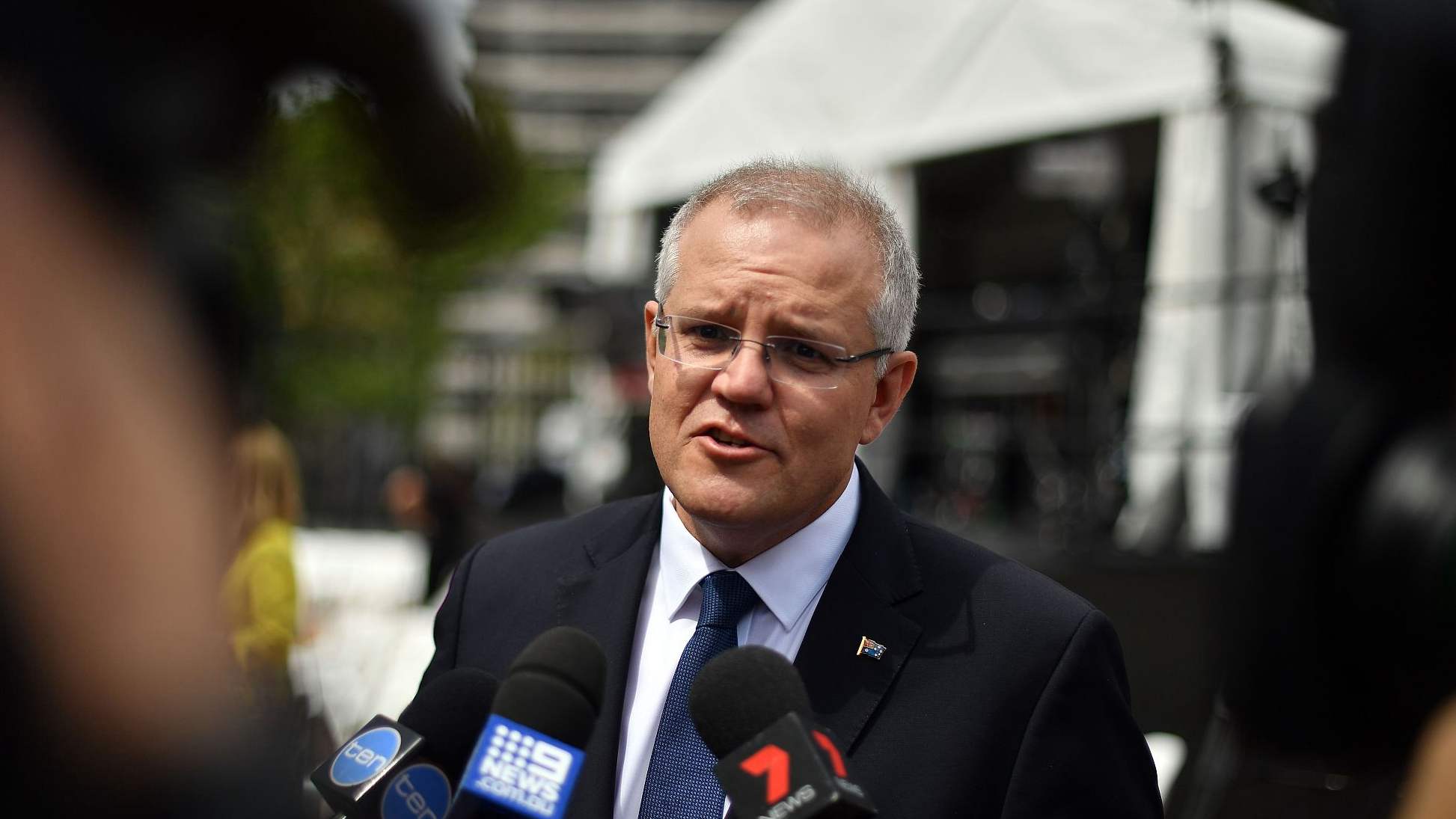
World
18:24, 08-Nov-2018
Australian PM: Relations with China must be kept on an even keel
Updated
17:43, 11-Nov-2018
CGTN's You Yang and Feng Ran
01:57

China is Australia's largest trading partner. However, the relationship between the two sides has also gone through several ups and downs.
Here, we examine the changes in Canberra's attitude towards Beijing, from Malcolm Turnbull's era to current Australian Prime Minister Scott Morrison's latest foreign policy speech.
Australia used to be China’s good friend on the international stage. As Australia's "largest trading partner," China has welcomed frequent visits by Australia's foreign ministers to Beijing.
But a "Pause Button" was hit, when former Australian Prime Minister Malcolm Turnbull took office. The 64-year-old former Liberal Party leader adopted an aggressive attitude towards China, including asserting "Australia has perfect right to sail its fleet through the South China Sea", banning China's Huawei Technologies from Australia's broadband network and stating that Australia would "stand up" to the so-called Chinese attempts to meddle in its domestic affairs.
But more changes could be coming soon.
Australian political observers say "Morrison has been avoiding a lot of Turnbull's foreign policies."
In his first foreign policy speech, Morrison said: "Australia's relationship with China is different. But it is strategic. It is important. And we seek to meet on a common ground where we can share the same interests and prosperity and stability of our region."
But he also noted that China is the country that's affecting the balance of power in the Indo-Pacific the most, especially with regards to Australia's security interests in the region. At this point, Morrison believes relations with China must be kept on an even keel.
In October, Victoria became the first Australian state to sign on China's Belt and Road Initiative (BRI). And a local newspaper said that Australia and China will reach deals totaling 15 billion US dollars at the ongoing China International Import Expo (CIIE) in Shanghai.
The Sydney Morning Herald has directly used the words "tensions ease" to describe the bilateral ties, but how far can we expect the warm current go? Only time holds the answer.

SITEMAP
Copyright © 2018 CGTN. Beijing ICP prepared NO.16065310-3
Copyright © 2018 CGTN. Beijing ICP prepared NO.16065310-3